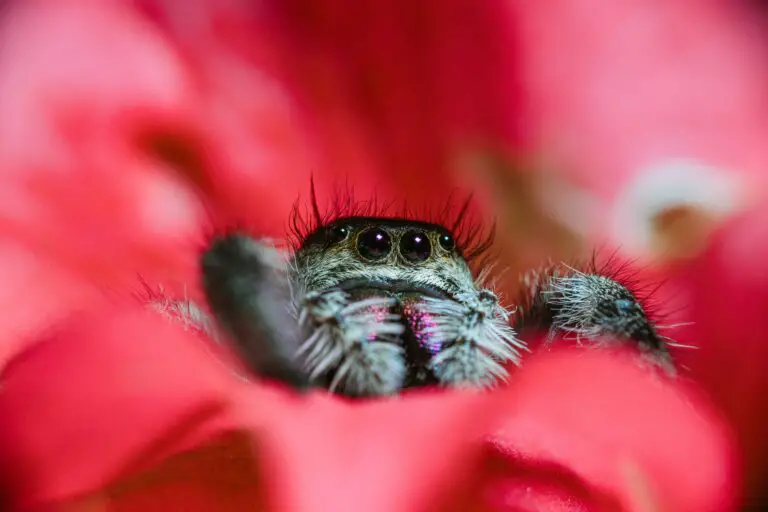Despite their intimidating and fierce look, the vast majority of the over 3,000 species of spiders in the United States aren’t harmful. And even though most jumping spiders have a lethal and devastating bite against their prey, their fangs are too weak to puncture the human skin which means there are little to no jumping spider bite symptoms.
As per our jumping spider friends, their bites may leave you with itchy, red wounds that get better within a week or so. And just so you know, most spiders that cause serious health complications manage to bite through the skin and insert their toxic venom.
Identifying spider bites
It’s super easy to identify a spider bite if you saw the particular spider that bit you. On the flip side, it is very possible that you may not notice the wounds until several hours later.
That said, if you suspect that a jumping spider may have bitten you, you want to look out for telltale symptoms like:
- A red welt
- Swelling
- Irritations to the skin
- Any troubling symptoms that come with the bite
While jumping spiders bites are mild, been bitten by other deadly spiders can leave you with excruciating symptoms like:
- Itching or rash
- Blisters that appear red or purple in color
- Pain around the bite area
- Difficulty breathing
- Muscle pain or cramping
- Nausea and vomiting
- Headache
- Fever
- Chills
- Swollen lymph or glands
- Rashes
- Anxiety and restlessness
- High blood pressure
Note: Compared to insect bites, most spider bites take a little longer to heal. And if it is anything other than a jumping spider, it may end up affecting skin tissues.
To reduce cases of infection from a spider bite, it’s essential to keep the bite area clean and disinfected.
How can you treat a spider bite at home?
If you ever get bitten by a jumping spider, you’ll want to follow these steps to get some relief.
- Apply an ice pack on the bite spot for at least 10 minutes at a time.
- Try to elevate the bite area to reduce swelling.
- To reduce itching, you can take an antihistamine such as diphenhydramine.
- Clean the bite region with soap and water to prevent infection
- If blisters develop, apply an antibiotic ointment to the bite area.
If symptoms don’t seem to subside or you are not showing any signs of recovery, please seek prompt medical attention. Similarly, seek prompt medical attention if you suspect that any of these species of spider has bitten you.
- Hobo spider
- Brown recluse
- Tarantula
- Black widow
- Brazilian wandering spider
Frequently asked questions
What happens if a jumping spider bites you?
While their bites and venoms aren’t harmful to humans, a jumping spider bite may cause mild or slight localized pain. Sometimes you may notice itching and mild swelling, which usually gets better after some days.
What does a jumping spider bite feel like?
If you ever get bitten by a jumping spider, you’ll notice a tiny bump that is reddish with a bit of swelling. Also, you may experience some itching and mild irritations.
When should I worry about a spider bite?
Even though jumping spiders aren’t harmful to humans, we advise that you seek medical attention if you have an open sore or bullseye mark. Also, if the bite gets worse after 24 hours, you should see your doctor.
- Regal Jumping Spider Lifespan – How Long Do They Live?
- Are Jumping Spiders Good Pets – Are They Safe To Own
- How Often Do Jumping Spiders Molt – Interesting Spidey Facts
- What Do Jumping Spiders Eat In The Winter Months – Spidey Facts
- Do Jumping Spiders Live in California – Top 2 Species
- What Eats Jumping Spiders – Which Part Of The Food Chain




